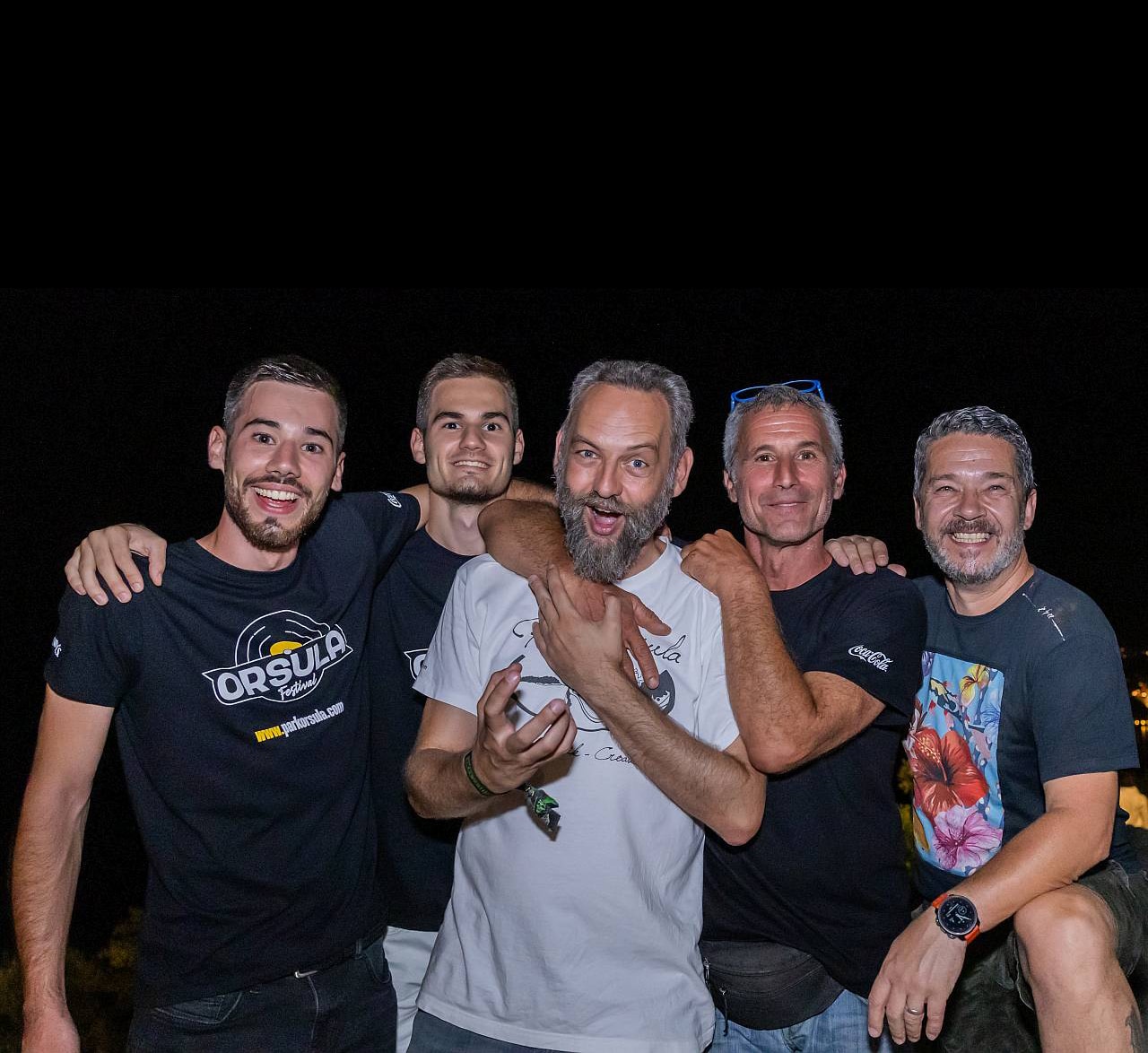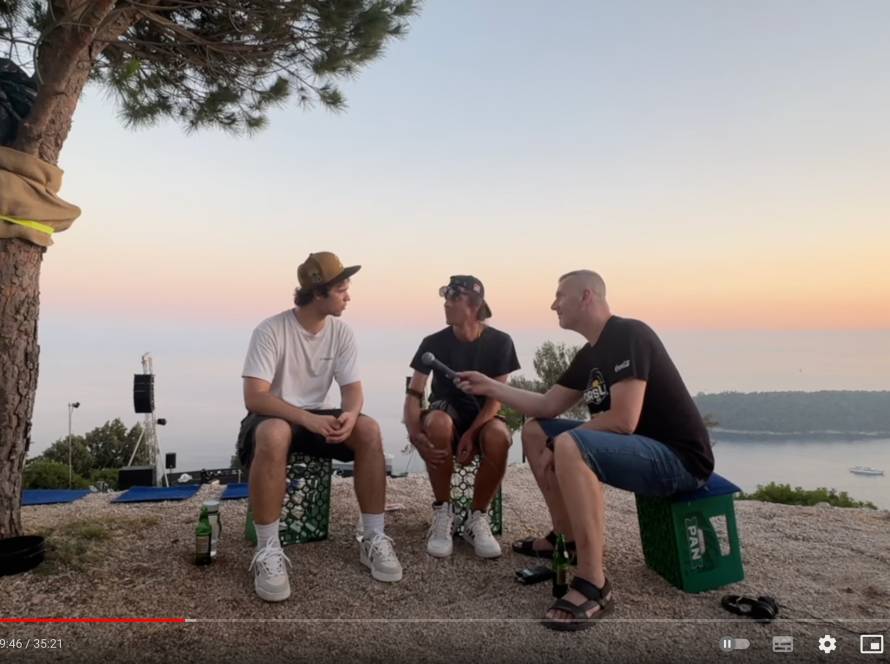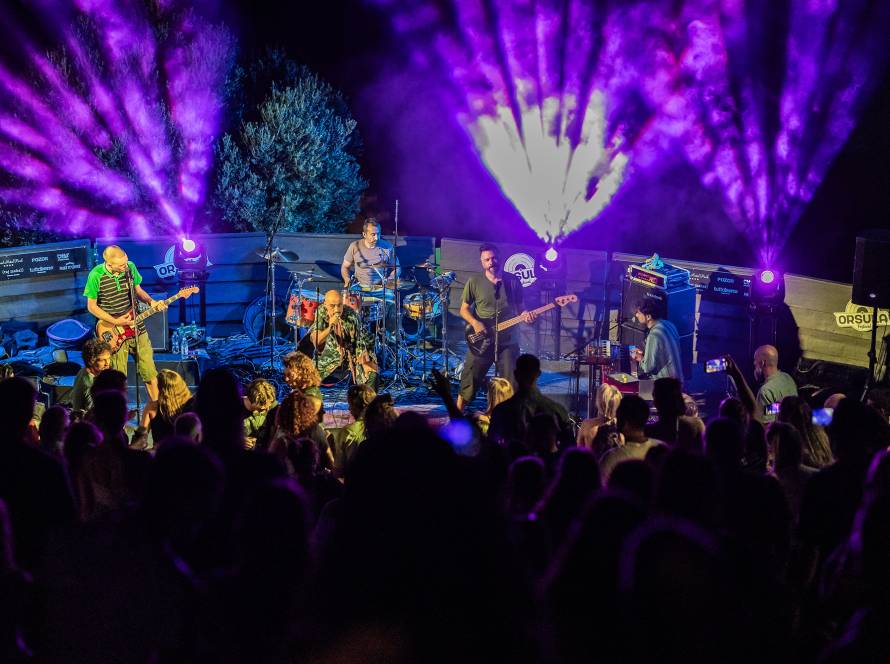Source: dubrovniknet.hr
Marin Vidak is 24 years old and is about to finish his fifth year of law school in Zagreb. Like most Dubrovnik students, he works during the summer, but his job is connected to a place where he has invested his time and effort since childhood. A place where he matured and grew, and to which he always returns. Among other reasons, because of this place, he decided to return home after finishing his studies. Can you guess? It’s Orsula, the most beautiful summer stage, which this year has brilliantly revived.
What does Orsula mean to you, Marin?
Orsula is, above all, the life’s work of my father, and I have a great love for this space, to the creation of which I have also contributed alongside him since I was very young. Back in 2008, I started digging stone with him. I invested a lot of my, admittedly boyish, work and time into building the amphitheater, planting plants, and everything else. Since the first concerts in 2011, I began selling tickets and carrying equipment. So from the beginning, I have been a part of this project, and probably for that reason, I have a special love for this place. On the other hand, Orsula is not just a beautiful venue but also a wonderful story, a concept of place and program that, I believe, means a lot to this city. I hope it all lasts and develops in a positive direction!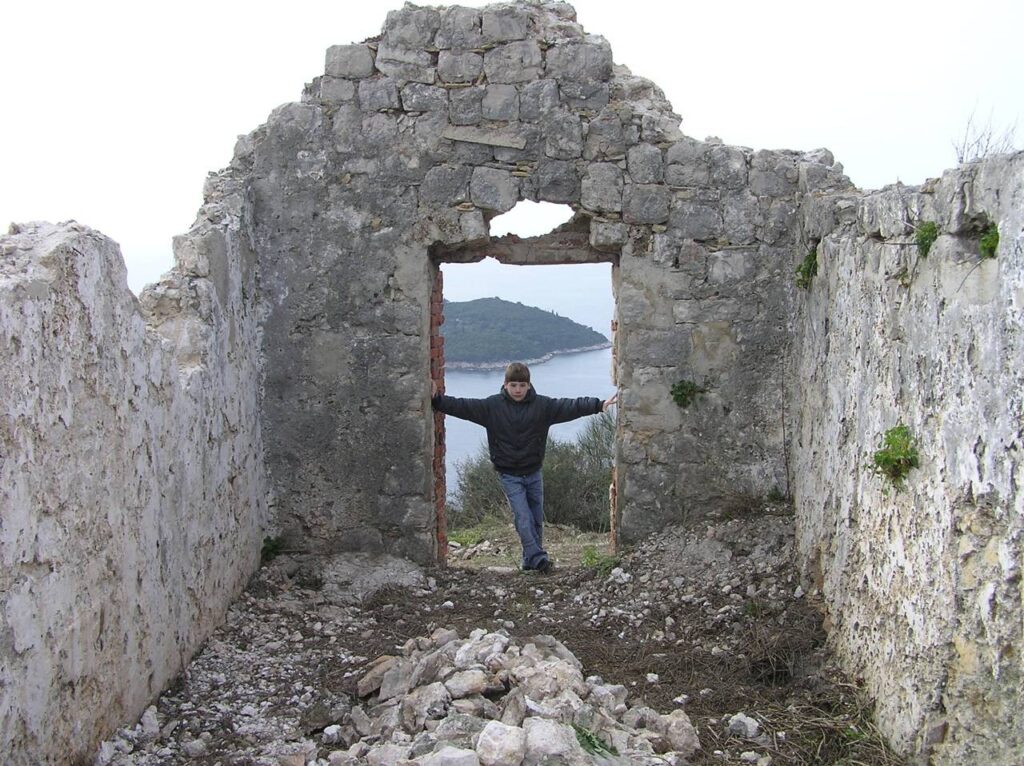
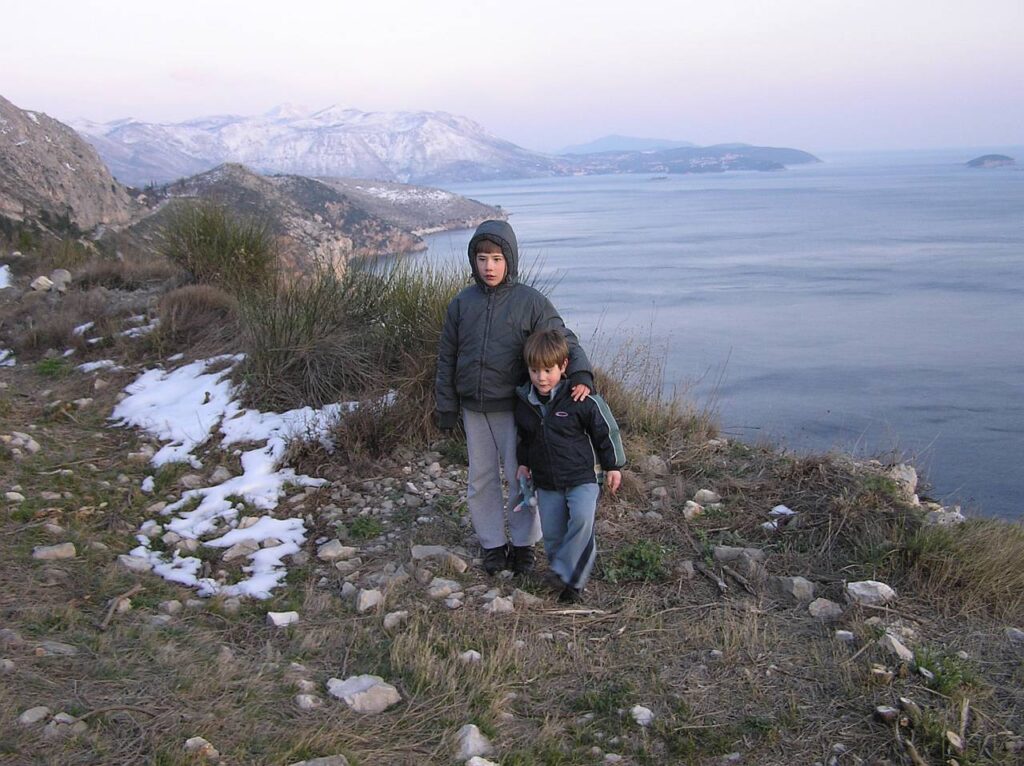
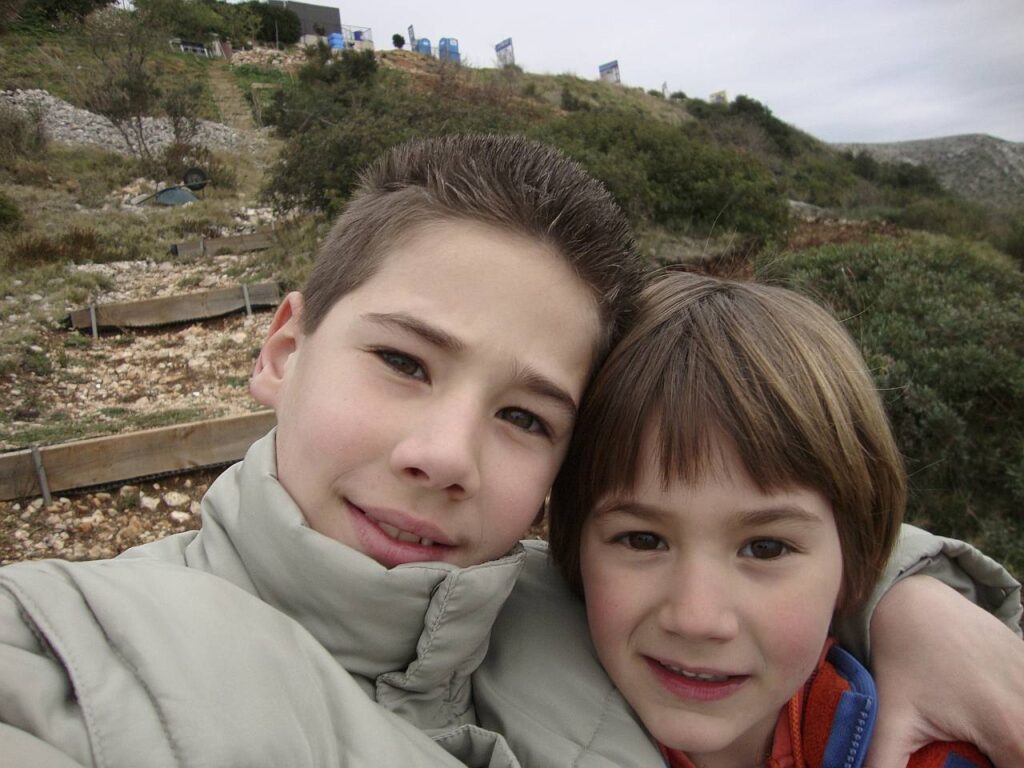
How did the comeback summer go?
Some concerts were sold out, some were fairly well attended, and others had a smaller audience, even though they were exceptionally good. Overall, the turnout was good. I believe this is because it was a comeback year and due to the fact that there really aren’t many similar events in the city, so people often come up to listen to a good concert. Orsula belongs to the citizens of Dubrovnik, and I think most people understand that preserving such a place actually represents at least a glimpse of a successful fight of the “little person” against the system. The system isn’t local or national politics but today’s global worldview where money is the only measure of success. That’s why citizens support Orsula with their attendance and positive feedback. We are just a passing generation that fought for its beginning, and our task is to try to preserve it for the generations to come.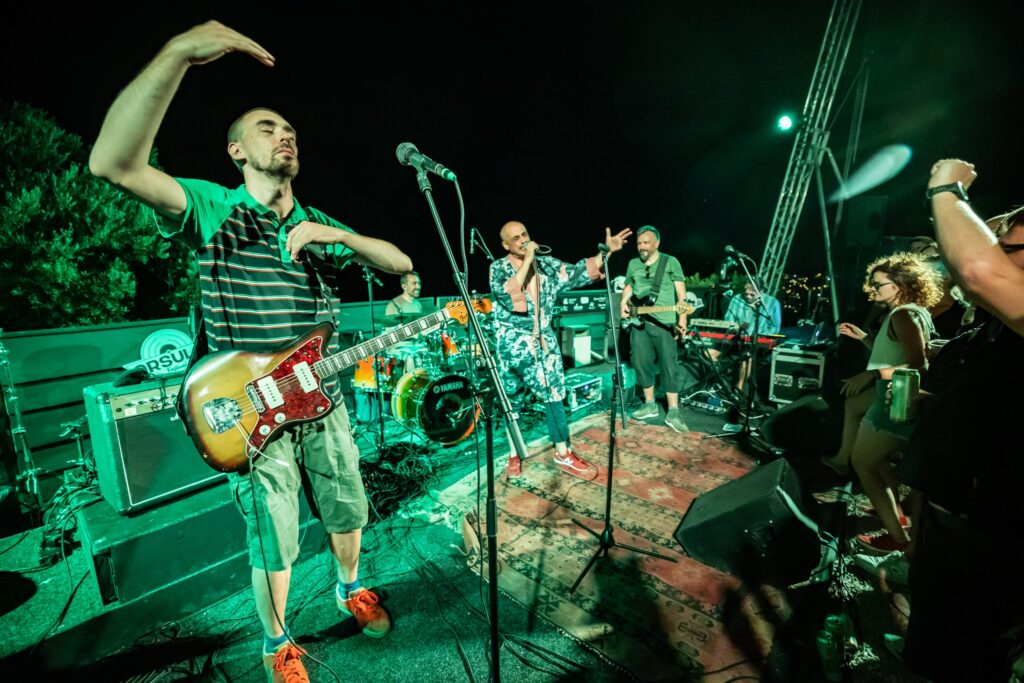
The program is truly diverse—from klapa (traditional a cappella groups), performances, and techno, to full-on rock concerts. What’s the average age of the audience?
Since Andro put together the program, I think the average age leans more toward his generation than the youth. However, surprisingly, we do get a lot of young people attending. I believe we should tailor the program more to the younger crowd, but nowadays a large part of young people listen to folk and turbo-folk music, so attracting a massive young audience would mean including those kinds of performers. We don’t want to go in that direction—not because we want to say those people aren’t worthy, but because we want to promote other musical genres that carry a certain quality message and are backed by dedicated artistic work. Unfortunately, those genres are unfairly neglected in the media and on the ground. They simply aren’t profitable, so the market has swallowed them up, and they remain somewhat hidden in the shadows. To help develop our audience, we’ve made admission free for all children and youth under 16 at our concerts!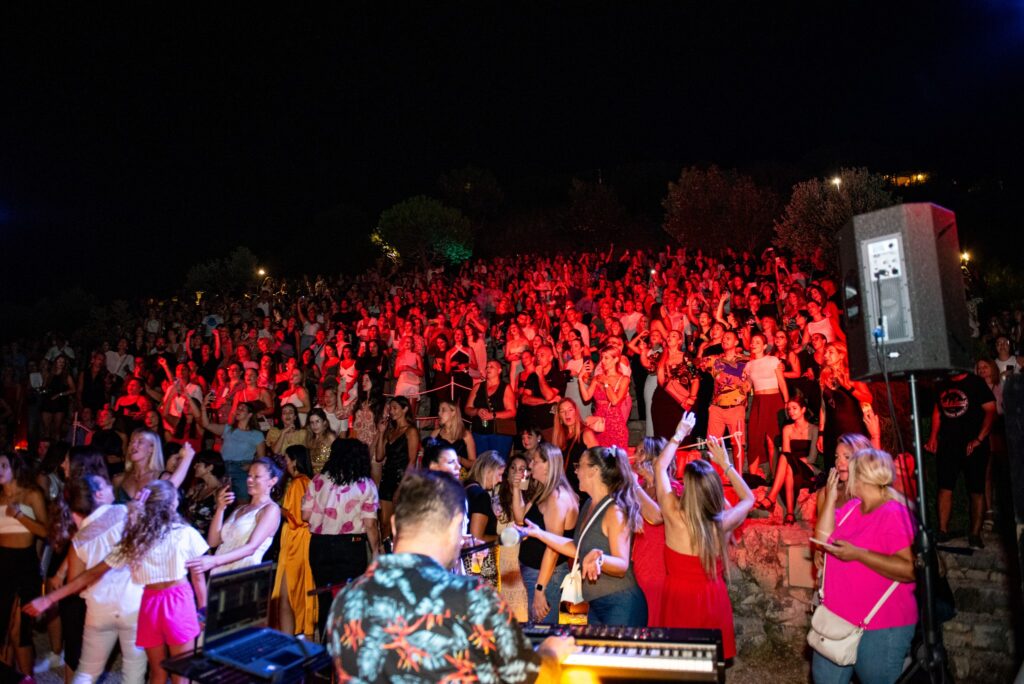
Marin, together with his father Andro and brother Đivo, participates in almost every aspect of organizing concerts at Orsula. What does all that involve, and who makes up the Orsula team?
Maintaining such a large space is quite complex. One of the most typical tasks during the festival is picking up cigarette butts in the morning after concerts, and this activity is repeated constantly. It can’t be done mechanically—only by the traditional method, pinch by pinch—and that’s the first thing I think of. On concert days, we thoroughly clean and disinfect the portable toilets and leave them open to dry all day in the sun. We receive the equipment and carry it from Višnjica to the stage. That’s the hardest part of the job because it usually happens in the afternoon when temperatures are high. Then we welcome the band, and the sound check begins.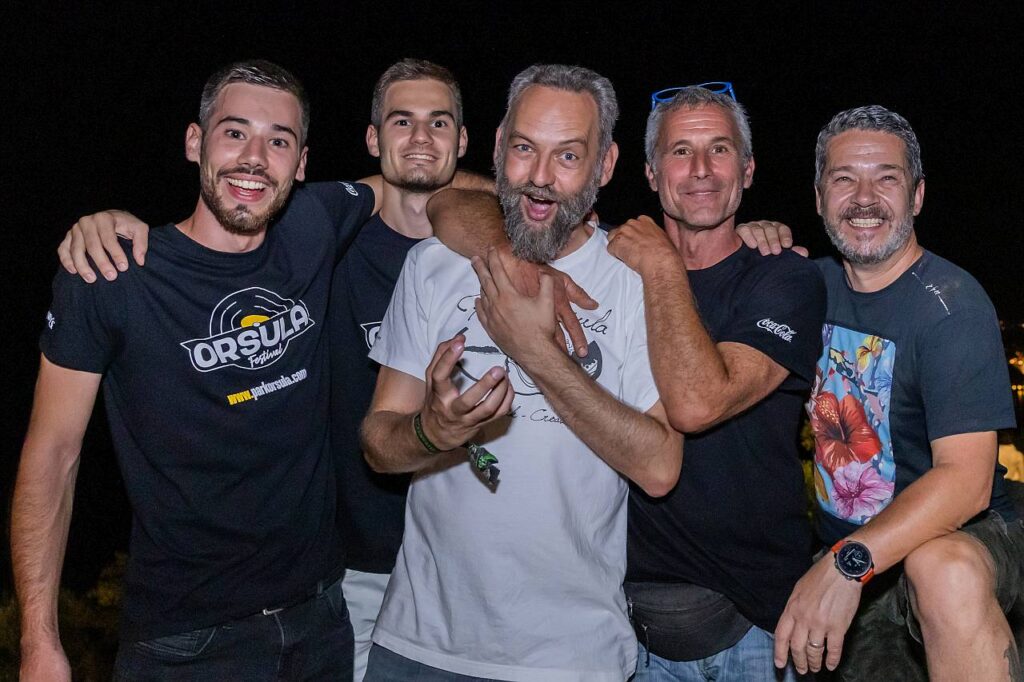
In the morning, we shop for groceries to prepare dinner for the performers, volunteers, and photographers, which we cook ourselves in the park and serve on-site before the shows. This summer, we fed around 150 performers from our improvised hillside kitchen, and everyone was thrilled with this homely approach. Of course, everything needs to be cleaned and washed afterward…
Then, there’s the preparation of the fiscal cash registers for ticket sales, guest lists, work at the entrance, and so on. After the concert comes the hardest part of the job — we’re all exhausted and on our feet, but we still have to pack up equipment, tents, and clean up the trash. When everyone leaves, we turn off the lights, but one of us always stays on guard overnight to sleep there and watch over the equipment and park.
The core team of Park Orsula consists of three very active people who are occupied with tasks 24/7: my dad, our specialist Nikola Đaković, and me. Lino Glavočić is responsible for technical production, the crew from Pandora Events handles catering, Gunch and Nene manage our social media, Ivan Bakulić runs the website, Jelena and Vanja take care of performers’ accommodation and public event registrations, Emir and his German Shepherd Mona are the main night guards, Vedran Levi handles top-notch photography, Damir Bogdanović is our longtime chief steward, my brother Đivo covers the lower entrances at every concert, and we also have a few volunteers and friends who step in and help out: Leo Ljubičić, Filip Bratoš, and others.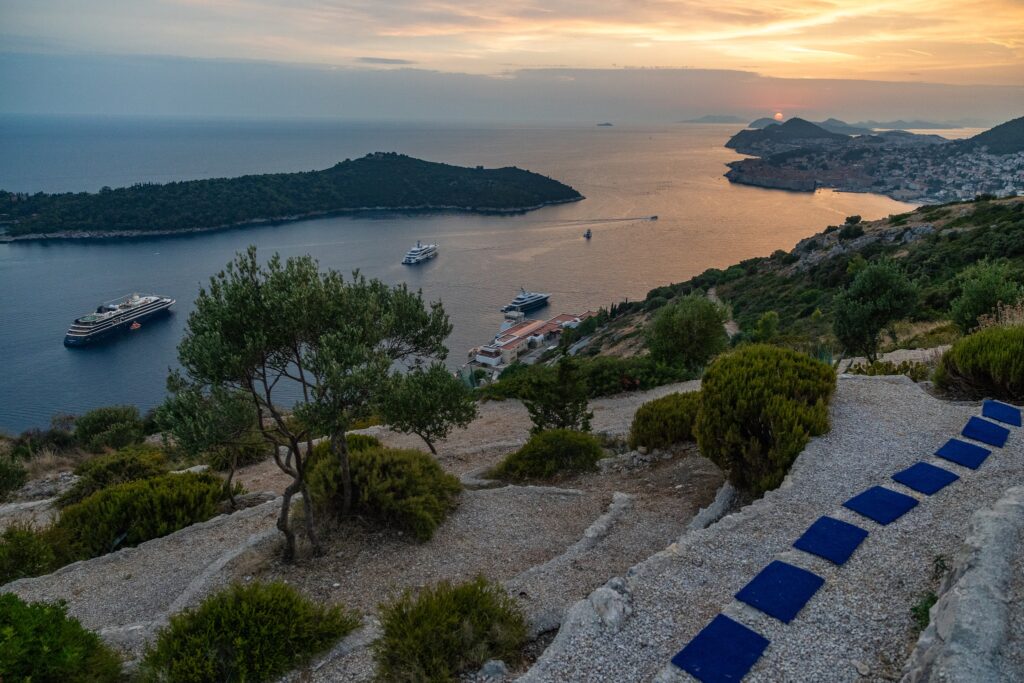
You’re in your final year of law school, finishing on time. You have just two exams left and then your diploma. What are your plans for the future?
I’ve decided to return to Dubrovnik. Mostly because of Orsula and this comeback program — I want to be present here. Following that, I decided to build my legal career locally. Life in Zagreb is great for students. It’s a big city with lots of opportunities. I met many new, interesting people. I would recommend everyone to study in Zagreb to get some distance from their hometown and see a different perspective. Zagreb helped me grow up and mature — from learning to live away from my parents, realizing you have to cook for yourself so you don’t go hungry, to understanding you can wear the same shirt three times before washing it, and to meeting different people and learning from mistakes. Over time, Zagreb also becomes small. Everything that was new and exciting stops bringing joy. After five years, I realized I’m drawn to the sea, my city, my people, and of course, Orsula.
The law faculty offers many career opportunities — which field do you see yourself in soon?
First, I have to finish my studies and then do my internship. I realized that in Zagreb, I’d just be a small fish in a huge aquarium. My colleagues who graduated and now work there don’t really get a chance to learn; nobody really dedicates time to mentoring them. I assessed that in Dubrovnik I’d have a better chance to learn — maybe for less money, but definitely more knowledge. Among Dubrovnik’s lawyers, my role model is Mr. Missoni, and I hope to arrange my internship with him.
I’m interested in advocacy, especially in property law, land registry law, inheritance law, and everything related to those fields. I think that’s a niche in Dubrovnik. Anyone who owns or inherits something ends up with land registry issues, but very few lawyers dedicate themselves to this. I’ve seen it in my own family’s case — things were done poorly, hastily, and we had a lot of problems. Lawyers avoid this field because the effort-to-earnings ratio is lower than, say, commercial law. So I think this could be my niche. Alongside my job, I plan to spend every free moment involved with the Orsula project.
When you say the Orsula project, what do you mean?
For me, Orsula is a project much bigger than one person or one family. It was once a neglected place full of trash, transformed into a beautiful park and amphitheater. But the space itself, without events and citizens who actively use and promote it, isn’t alive — as we saw during the years it was inactive. The Orsula project is meant for our community, which has been somewhat neglected because of the hectic tourism. Orsula, as a stage, provides a quality space for concerts by top performers, but also for promoting young Dubrovnik and Croatian bands. We want it to be a place where people can hear something new and a place that nurtures the future audience. Because if young people don’t have a place where quality is offered, how can we expect them to recognize it tomorrow?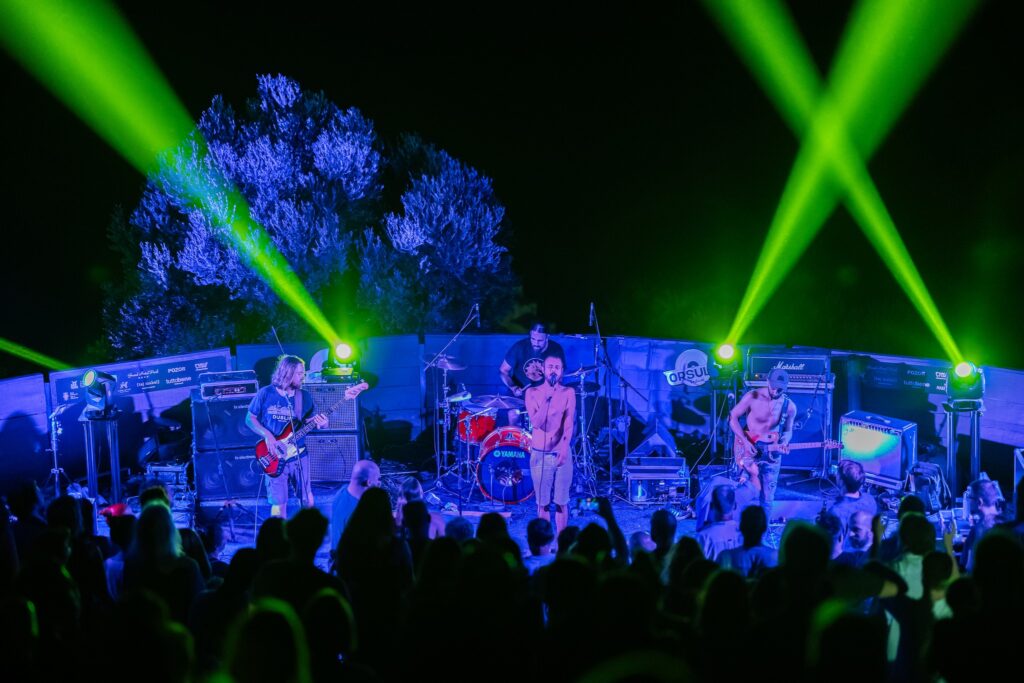
Many people think that Orsula can bring in a good profit, but is that really the case?
By lowering standards and focusing primarily on tourism, some money can indeed be made—today, that’s not a problem. But are profits an end in themselves? Some things cannot be bought with money. Orsula is not and must not become a purely commercial project because as a community, we would never manage to preserve it for future generations that way. Money, as the driving force, has no understanding of the needs of the local community.
We locals can hardly compete in the global economic market if we turn Orsula into a money-printing machine, because in the wider world there will always be someone richer who can offer more. Orsula is a place where the idea of a stage must be preserved and concert culture nurtured, as it is the only place in the city where such events are possible due to noise restrictions.
Furthermore, Orsula is already an established and proven brand, into which a lot of effort has been invested. We will only keep it if we encourage socially beneficial development cycles that citizens can be proud of and want to participate in. Money should certainly be seen as a consequence of quality work, not as the reason for work.
We need to be patient in the long term and always strive for the highest quality. This is how you build a self-sustaining project that will eventually finance itself—and that is more than enough. Unfortunately, Orsula is currently the only place of its kind in the city, which is why it is so important. It has the potential to be an example and pride for the entire community, and then its bright future will be guaranteed.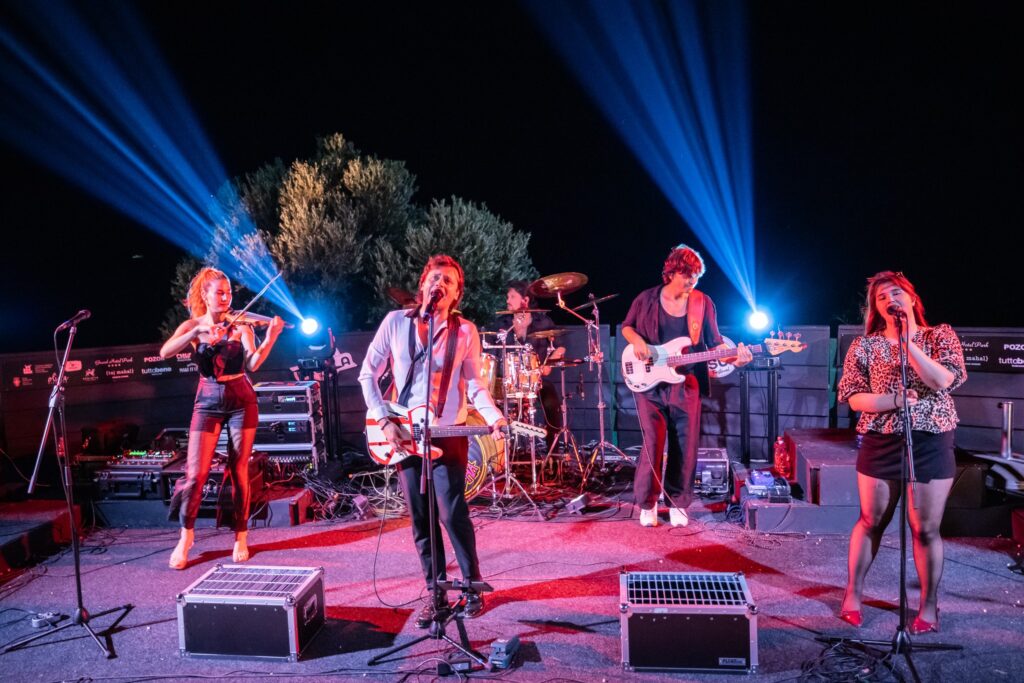
Which concerts were the most attended?
— Matija Cvek, Silente, and Adi Šoše sold out well in advance. The least attended concerts were Porto Morto and Nina Ćorić, which is truly a shame because they are excellent and dedicated artists. Personally, my favorite concert was the double show featuring Artan Lili and Mort. All the other concerts were also well attended, each with their own audience, and I was surprised by how many people came to Nikša Kušelj’s performance.
Preparations for the next season are already underway. We aim to be even better, and we warmly thank the audience for every ticket purchased, as we see this act as an important show of support and a very concrete, active participation in the further development of this project.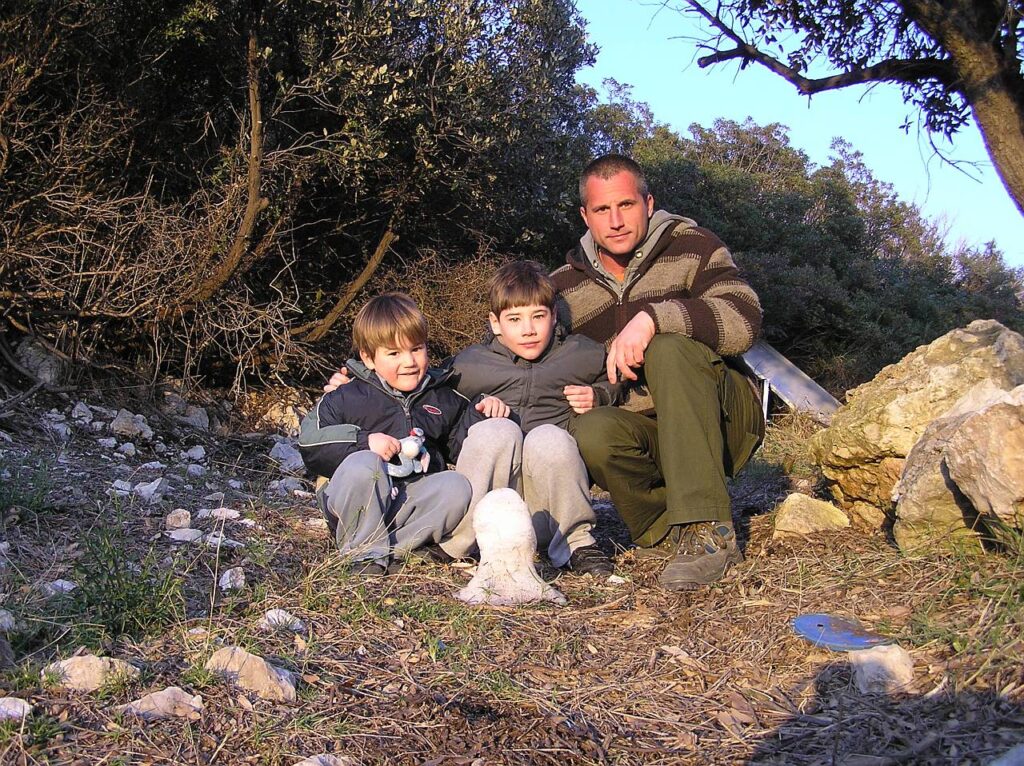
GALLERY: Private Album and Vedran Levi

